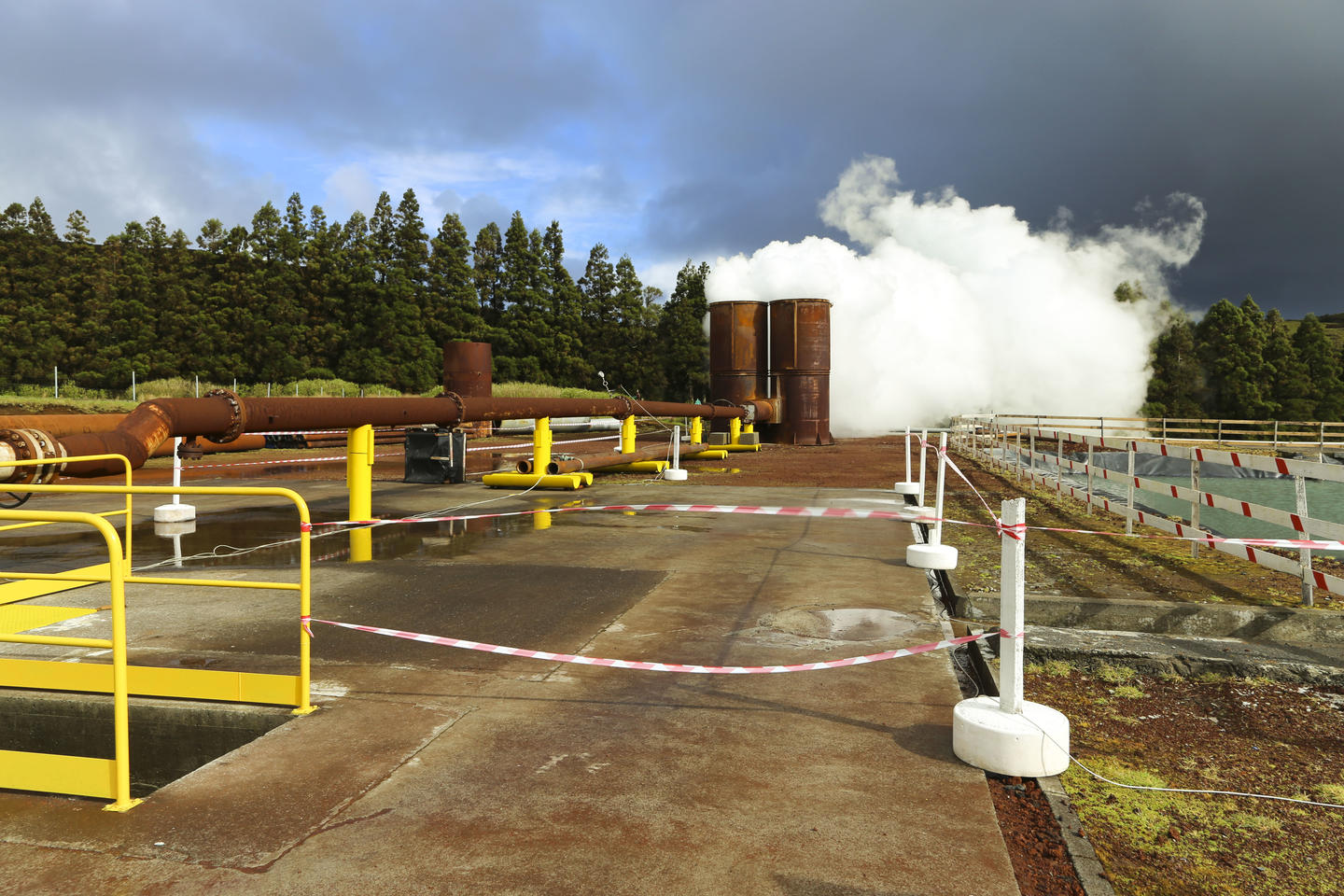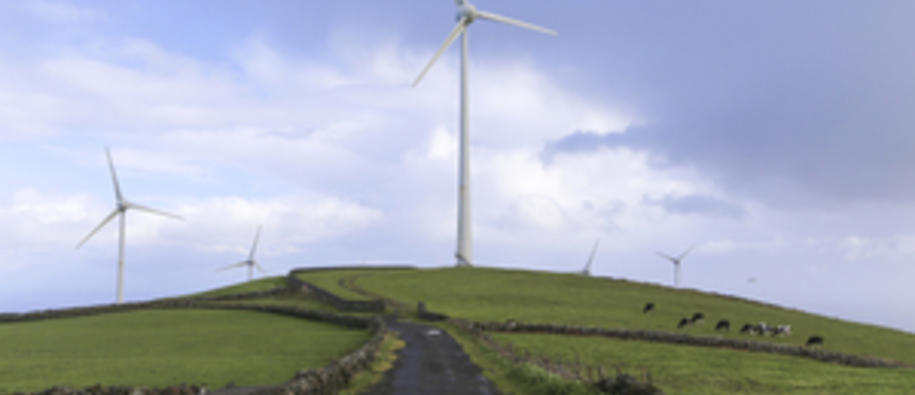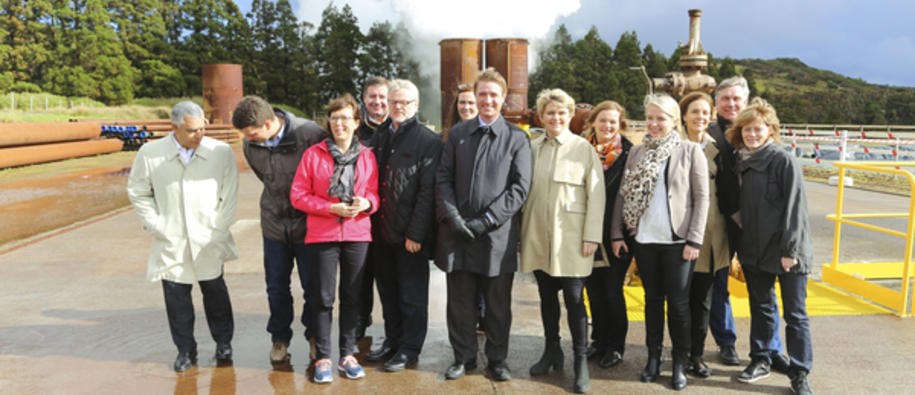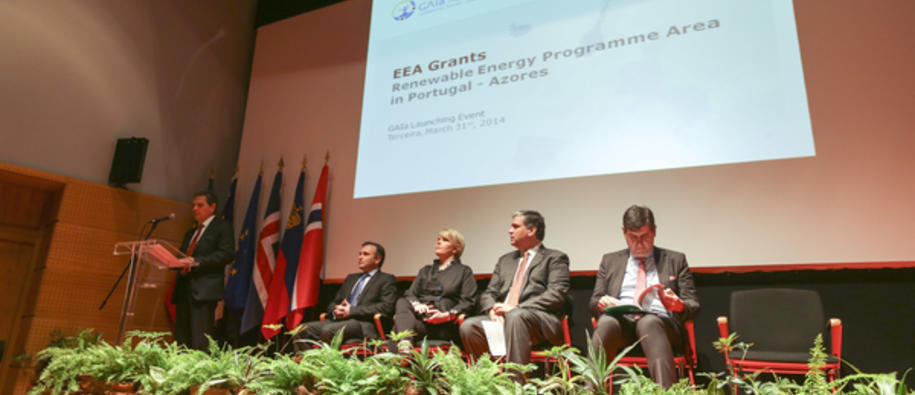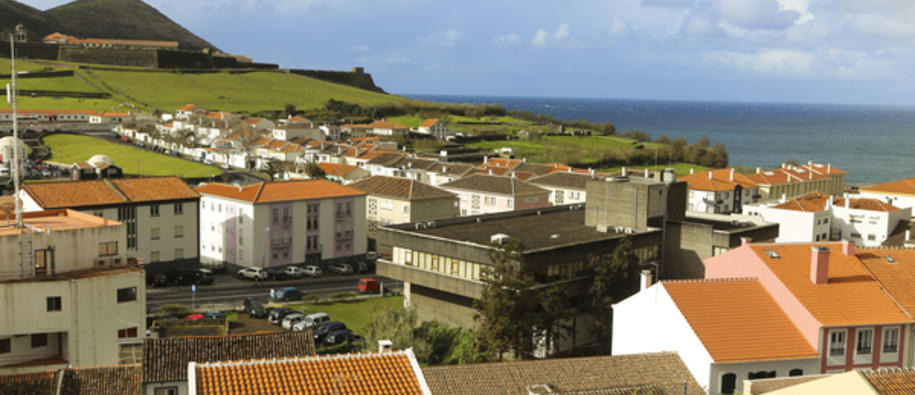Today, the island of Terceira in the Azoresis dependent on the importation of diesel for almost 90% of its energy production. Replacing 10% of the energy generated by diesel with geothermal energy would lead to reduced emissions of greenhouse gases and generate sustainable jobs. "We welcome this cooperation with the EEA Grants, and the bilateral projects we have established with the Icelandic government", said Artur Trindade, Secretary of State for Energy Affairs of Portugal, adding:
"Geothermal energy is the most important potential source of renewable energy in the Azores We hope to go further in exploring technological capabilities in order to make the Azores a greener region and to show our ambition in terms of climate and energy policies for Portugal, the European Economic Area, and the world,” said Artur Trindade.
The renewable energy programme was launched at the Pico Alto Geothermal Field and the Serra do Cume Wind Farm in Terceira, Azores on 31 March 2014 by Ragnheiður Elín Árnadóttir, the Icelandic Minister of Industry and Commerce, Jorge Moreira da Silva, Portuguese Minister of Environment, Spatial Planning and Energy, and Vasco Cordeiro, President of the Government of the Azores, Portugal.
During the next four years, the Portuguese government plans to invest over €85M to exploit the green energy sources found on the islands, including €4 M in support from Iceland, Liechtenstein and Norway through the EEA Grants.
Iceland is a world leader in geothermal energy. About 9 out of 10 households are heated by this environmentally friendly energy source.
“Increasing energy efficiency and the share of renewable energy in the energy mix is an effective way of making our energy supply more environmentally friendly and our energy sources more diverse. Under the EEA Grants, €135 million has been set aside to increase energy efficiency and the share of renewable energy in beneficiary countries, in line with the ‘Europe 2020’ targets,” said Ragnheiður Elín Árnadóttir, the Icelandic Minister of Industry and Commerce.
“The partnership that has been established through the EEA Grants is very important for two reasons. Firstly, the partnership itself, with the exchange of knowledge and experience with Iceland - a world leader in the use of geothermal energy for domestic and industrial purposes. And secondly, the importance of renewable energy as a driving force for the economy, the society and the development of our region. With this programme we can provide a cleaner region that will be important also for the future generations”, said Carlos Bicudo, member of the Board of Directors, of Electricidade dos Açores Renovaveis, S.A.
Bilateral cooperation
Iceland has put geothermal energy in the forefront of its cooperation with the beneficiary countries of the EEA Grants. Funded by the EEA Grants, Portugal as well as Hungary and Romania will work together with the National Energy Authority of Iceland to develop and exploit the potential of geothermal energy.
The “Electricidade dos Açores” (Electricity of the Azores) and “National Energy Authority of Iceland” have collaborated extensively from the beginning of the planning phase of the programme and this close collaboration will continue throughout the implementation phase of the GAIa Programme.
Experts from the United Nations University – Geothermal Training Programme, in Iceland – will provide professional courses on exploration and exploitation of high enthalpy geothermal energy sources both in Ponta Delgada, São Miguel Island, Azores, and invite professionals from the Azores to participate in the University’s postgraduate programmes in Iceland.
